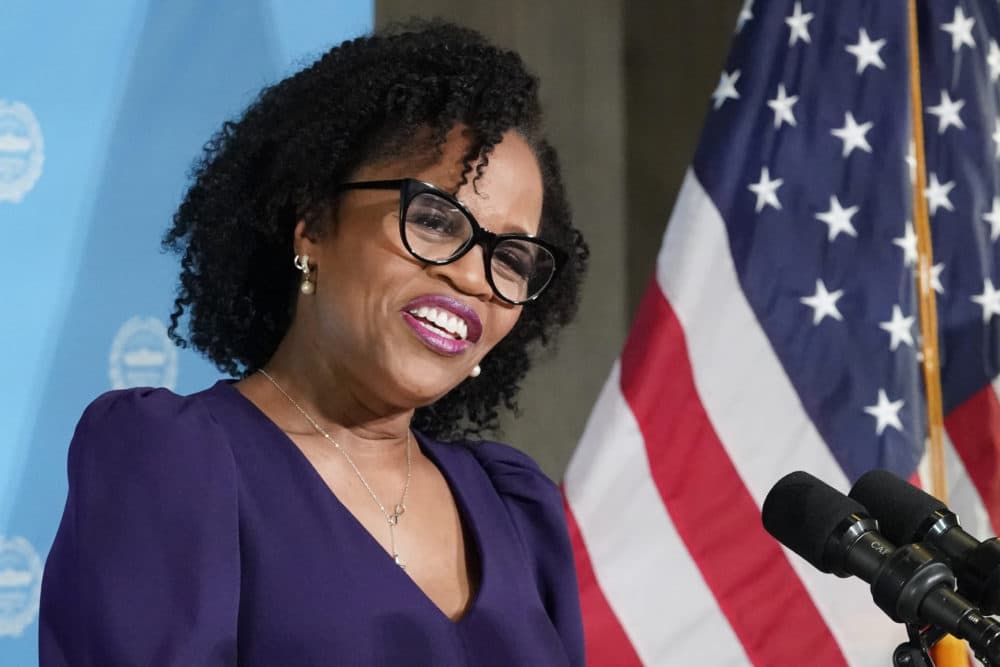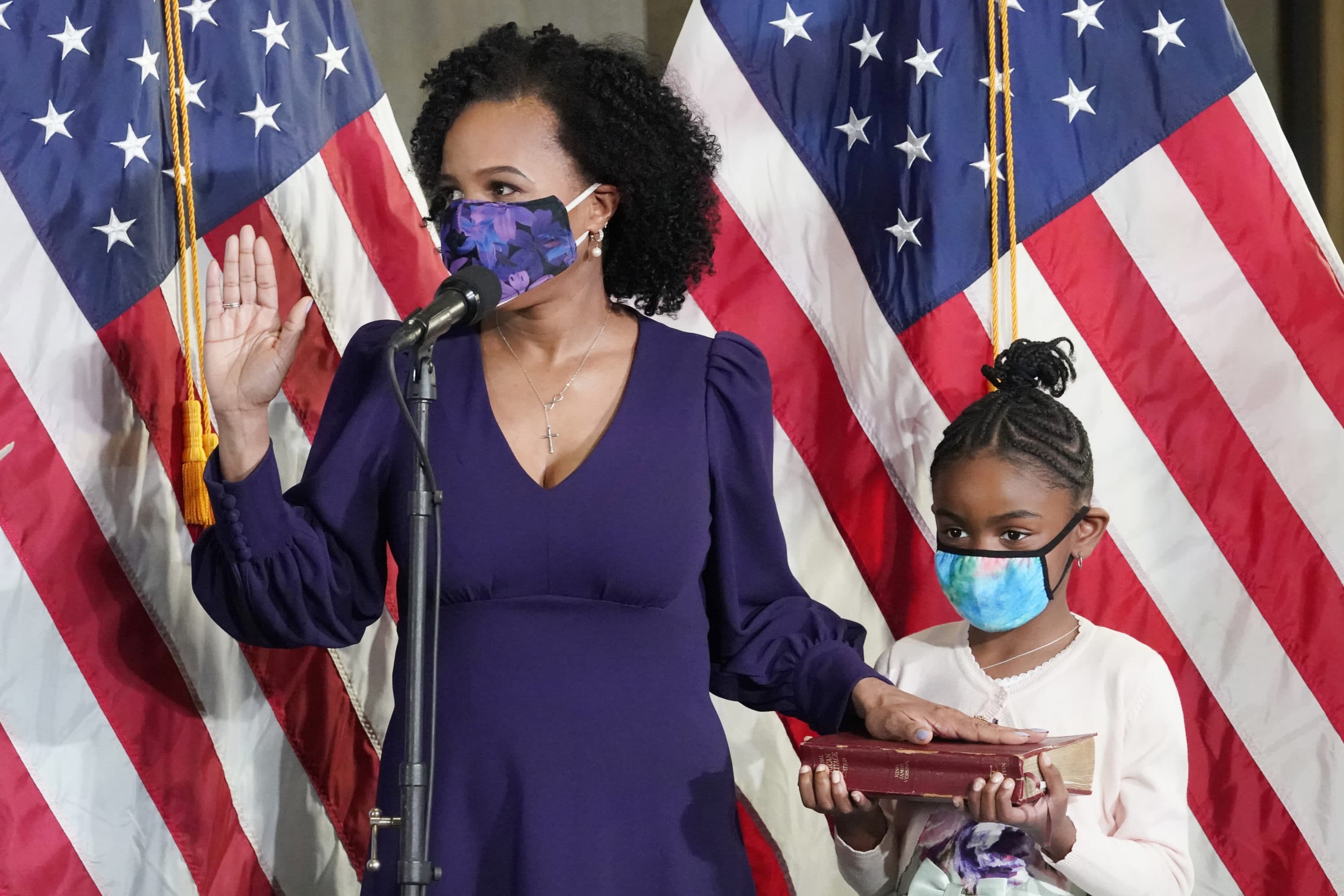Advertisement
Commentary
Mayor Kim Janey Just Made History In Boston. This Is Our Chance For Real Change

Like spring in New England, progress comes to the city of Boston haltingly, cautiously, in fits and starts. This year, though, could bring dramatic, long-lasting, and promising changes in the city’s social and political climate — if we seize the opportunity.
The twin public health crises of COVID-19 and systemic racism have shown us that our society is fragile — all the more so when we are led by a president who deliberately exploits that fragility. But with the Trump administration behind us, full vaccination on the horizon and a remarkably diverse field of mayoral and city council candidates, 2021 could be the start of a bright new era in Boston.
Wednesday, Mayor Kim Janey was sworn in as mayor, making history as Boston’s first Black mayor, and first woman mayor. The milestone comes at a crucial time for the city. But the changing of the guard does not guarantee meaningful change. If we want a city that’s more open, more equitable and more strident in its defense of our civil liberties, we have to do more than give speeches — we have to see it through. If I’ve learned anything about government in my time leading the ACLU of Massachusetts, it’s that actions speak louder than words, and data does some of the best talking.
That’s why my first recommendation for a new Boston is transparency. Democracy works best when we can actually see it working. In order to shore up faith in our institutions, the city council should continue to demand — and the new administration should promptly deliver — relevant public records to ensure that our government is working to serve the entire Boston community.

Too often, the ACLU and other advocates have had to resort to litigation to pry these records loose. Too often, agencies like the Boston Police Department fail to release data showing racial disparities in their practices. And too often, these agencies will pay lip service to transparency, while failing to embrace change when it’s needed most -- including by failing to show up for public meetings on police reform implementation.
Secondly, we need equity, which is intricately linked to transparency. Once we name and identify problems like racial disparities, whether recent or historical, we are obligated to rectify them. Boston’s Black community, for example, continues to endure the longstanding indignities and outright dangers of over-policing. But systemic racism in Boston goes well beyond the police; in fact, it is found at every level of city policy.
Systemic change requires us to rectify historically induced inequalities, and the resulting wealth gap that plagues our city, state and nation. The COVID-19 pandemic has highlighted the pre-existing racial disparities in access to health care in Massachusetts. A 2017 Boston Globe Spotlight series reported that the median net worth of Black Bostonians is $8, compared with the median net worth of $247,000 for white households. Meanwhile, Boston’s once-bustling Chinatown has suffered profoundly due to systemic disparities and anti-Asian racism. And a recent study by the Walsh administration found that, over a five-year period, only 1.2% of city contracts went to Black- and Latinx-owned businesses.
Boston is still waiting for bold police reform.
To acknowledge these challenges and injustices, and to meet them head on, we require clarity of vision and courage. The third ideal we need as we move forward, therefore, is boldness. It’s the kind of boldness that takes the best lessons of the pandemic and applies them in the building of a better future. During the pandemic, we all realized that, for the state’s Open Meeting Law to have any meaning, public meetings should take place and be accessible remotely. Remarkably, although perhaps unsurprisingly, this led to an increase in civic participation. Even before the pandemic, working people, seniors, people with disabilities and those with family or work commitments would find it impossible to spend hours at a municipal building. Now that those barriers to equity have been lifted, why should they ever be reinstated?
Finally, there can be no justice without accountability. Boston is still waiting for bold police reform. Last year, former Mayor Walsh and the Boston Police Reform Task Force set forth policies to protect the public from violent policing and to hold police accountable through increased transparency. Eight months into police union contract negotiations and amidst reports of the department exceeding its generous overtime budget, new city leaders have an opportunity to give these reforms some teeth. That includes ensuring a strong and effective Office of Police Accountability and Transparency and divesting from police to invest in community-based services.
When it comes to expanding civil rights and protecting civil liberties, Boston can lead the nation.
